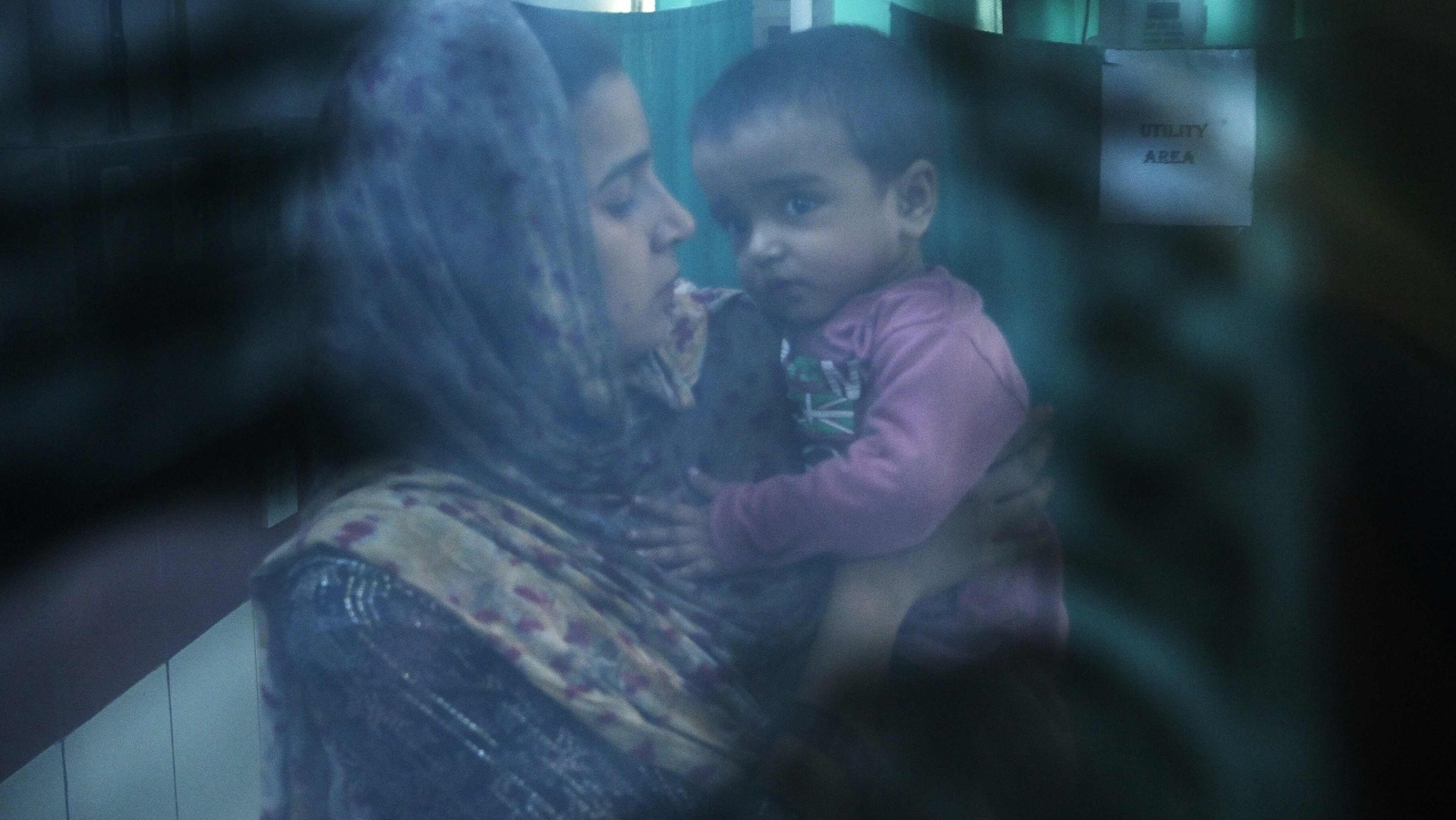Health
Five Children Test HIV Positive After Blood Transfusions in Jharkhand

Five children in Chaibasa, Jharkhand have tested positive for HIV following blood transfusions intended for treating thalassemia. The alarming situation emerged two days ago, prompting immediate actions from health officials and raising concerns about the safety protocols within local blood banks.
Jharkhand’s Health Minister Irfan Ansari characterized the incident as “extremely serious.” He confirmed that a preliminary investigation revealed one child had contracted HIV after receiving numerous blood transfusions over an extended period. The investigation began after a family reported that their 7-year-old child had received HIV-infected blood from a local blood bank.
The minister announced a high-level inquiry into the matter, stating, “Taking swift action in this grave matter, the Civil Surgeon of Chaibasa, the doctor in charge of the HIV unit at Sadar Hospital, and the concerned technician have all been suspended with immediate effect.”
The inquiry team, composed of five medical professionals, was established to scrutinize how the contamination occurred. Initially, four children were diagnosed with HIV on a Saturday morning, following the revelation about the earlier case. According to the district civil surgeon, Dr. Sushanto Majhee, the first child had received around 25 units of blood since beginning treatment at the blood bank, with the HIV positive result emerging over a week ago.
In addition to the blood transfusions, Dr. Majhee noted that other factors, such as exposure to contaminated needles, could contribute to the spread of HIV.
In response to the incident, Jharkhand Chief Minister Hemant Soren called for a comprehensive audit of all blood banks in the state, demanding a report within five days. He stated, “Lax arrangements in the health process will not be tolerated under any circumstances.” Each affected family will receive financial assistance of ₹2 lakh, and the children will be provided with free medical treatment for their condition.
Minister Ansari emphasized the need for accountability, asserting that any negligence related to children’s health will not be tolerated. He reiterated that HIV infections may not always be detectable immediately, especially if blood is collected during the window period.
Thalassemia, the condition affecting the children, is an inherited blood disorder characterized by insufficient production of hemoglobin, an essential protein in red blood cells. According to the Centers for Disease Control and Prevention (CDC), inadequate hemoglobin can lead to a shortage of healthy red blood cells in circulation.
The government’s decisive measures highlight the urgency of ensuring safety standards in medical practices, especially concerning vulnerable populations like children. As investigations continue, officials are under pressure to prevent similar incidents in the future and maintain public trust in healthcare services.
-

 World3 months ago
World3 months agoSBI Announces QIP Floor Price at ₹811.05 Per Share
-

 Lifestyle3 months ago
Lifestyle3 months agoCept Unveils ₹3.1 Crore Urban Mobility Plan for Sustainable Growth
-

 Science3 months ago
Science3 months agoNew Blood Group Discovered in South Indian Woman at Rotary Centre
-

 Sports3 months ago
Sports3 months agoBroad Advocates for Bowling Change Ahead of Final Test Against India
-

 World3 months ago
World3 months agoTorrential Rains Cause Flash Flooding in New York and New Jersey
-

 Top Stories3 months ago
Top Stories3 months agoKonkani Cultural Organisation to Host Pearl Jubilee in Abu Dhabi
-

 Science3 months ago
Science3 months agoNothing Headphone 1 Review: A Bold Contender in Audio Design
-

 Top Stories3 months ago
Top Stories3 months agoAir India Crash Investigation Highlights Boeing Fuel Switch Concerns
-

 Sports3 months ago
Sports3 months agoCristian Totti Retires at 19: Pressure of Fame Takes Toll
-

 Business3 months ago
Business3 months agoIndian Stock Market Rebounds: Sensex and Nifty Rise After Four-Day Decline
-

 Politics3 months ago
Politics3 months agoAbandoned Doberman Finds New Home After Journey to Prague
-

 Top Stories3 months ago
Top Stories3 months agoPatna Bank Manager Abhishek Varun Found Dead in Well









